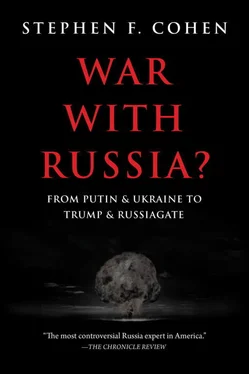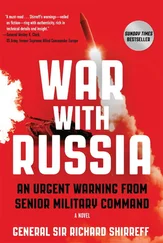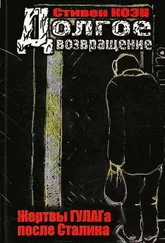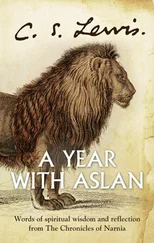It’s a misnomer to term these people representatives of a hidden “deep state.” In recent years, they have been amply visible on television and newspaper op-ed pages. Instead, they see and present themselves as members of a fully empowered and essential branch of government. This too has gone largely undiscussed while nightingales of that branch—such as David Ignatius and Joe Scarborough in the pages of the the Washington Post —have been in full voice. 107, 108
The result is to further criminalize any advocacy of “cooperating with Russia,” or détente, as Trump sought to do in Helsinki with Putin. A Russophobic hysteria is sweeping through the American political-media establishment, from Brennan and—pending actual evidence against her—those who engineered the arrest of the young Russian woman Maria Butina (imagine how this endangers young Americans networking in Russia) to senators preparing new “crippling sanctions” against Moscow and editors and producers at the Times, Post , CNN, MSNBC, and other media outlets. As the dangers of actual war with Russia grow, the capacity of US policy-makers, above all the president, are increasingly diminished. To be fair, Brennan may be only a symptom of this American crisis, some say the worst since the Civil War.
There was a time when many Democrats, certainly liberal Democrats, could be counted on to resist this kind of hysteria and spreading neo-McCarthyism. (Brennan’s defenders accuse Trump of McCarthyism, but Brennan’s charge of treason without any evidence was quintessential McCarthy.) After all, civil liberties, including freedom of speech, are directly involved—and not only Brennan’s and Trump’s.
But Democratic members of Congress and pro-Democratic media are in the forefront of the new anti-Russian hysteria, with few exceptions. A generally liberal historian tells CNN viewers that “Brennan is an American hero. His tenure at the CIA was impeccable. We owe him so much.” In the same vein, two Post reporters write of the FBI’s “once venerated reputation.” 109, 110
Is this the historical amnesia I pointed out earlier? Is it professional incompetence? A quick Google search would reveal Brennan’s less than “impeccable” record, FBI misdeeds under and after Hoover, as well as the Senate’s 1976 Church Committee report of CIA and other intelligence agencies’ very serious abuses of their power. Or have liberals’ hatred of Trump nullified their own principles? The critical-minded Russian adage would say, “All three explanations are worst.”
“Vital” US Moles in the Kremlin
August 29
FOR NEARLY TWO YEARS, MOSTLY VACUOUS, malignant Russiagate allegations have drowned out truly significant news directly affecting America’s place in the world. In recent days, for example. French President Emmanuel Macron declared: “Europe can no longer rely on the United States to provide its security.” He called instead for a broader kind of security “and particularly doing it in cooperation with Russia.” 111About the same time, German Chancellor Angela Merkel and Russian President Putin met to expand and solidify a crucial energy partnership by agreeing to complete the Nord Stream 2 pipeline from Russia, despite US attempts to abort it. Earlier, on August 22, the Afghan Taliban announced it would attend its first ever major peace conference—in Moscow, without US participation.
Thus does the world turn, and not to the wishes of Washington. Such news would normally elicit extensive reporting and analysis in the American mainstream media. But amid all this, on August 25, the ever-eager New York Times published yet another front-page Russiagate story—one that if true would be sensational. Hardly anyone seemed to notice.
According to the Times ’ regular Intel leakers, US intelligence agencies, presumably the CIA, has had multiple “informants close to… Putin and in the Kremlin who provided crucial details” about Russiagate for two years. Now, however, “the vital Kremlin informants have largely gone silent.” The Times laced the story with the usual misdeeds attributed to Putin and equally untrustworthy commentators, as well as the mistranslated Putin statement incorrectly having him say all “traitors” should be killed. But the article’s sensation is that the US government had moles in Putin’s office.
Skeptical or credulous readers will react to the Times story as they might. Actually, a lesser version of it first appeared, which I noted earlier, in the Washington Post , an equally hospitable Intel platform, on December 15, 2017. I found it implausible for much the same reasons I had previously found implausible the Steele dossier, also purportedly based on “Kremlin sources.” But the Times ’ expanded version of the mole story raises new questions.
If US intelligence really had such a priceless asset in Putin’s office—the Post story implied only one, the Times writes of more than one—imagine what they could reveal about Enemy No. 1 Putin’s perhaps daily intentions abroad and at home. Why, then, would any American Intel official disclose this information to any media at the risk of being charged with a treasonous capital offense? And now more than once? Or, since “the Kremlin” closely monitors US media, at risk of having the no less treasonous Russian informants identified and severely punished? Presumably, this why the Times ’ leakers insist that the “silent” moles are still alive, though how they know we are not told. All of this is even more implausible, and the Times article asks no critical questions.
Why leak the mole story again, and now? Stripped of extraneous financial improprieties, failures to register as foreign lobbyists, tacky lifestyles, and sex having nothing to do with Russia, the gravamen of the Russiagate narrative remains what it has always been: Putin ordered Russian operatives to “meddle” in the US 2016 presidential election in order to put Donald Trump in the White House, and Putin is now plotting to “attack” the November congressional elections in order to get a Congress he wants. The more Robert Mueller and his supporting media investigate, the less actual evidence turns up. And when it seemingly does, it has to be massaged or misrepresented, lest it seem to be Russiagate without Russia.
Nor are “meddling” and “interfering” in the other’s domestic policy new in Russian-American relations. Tsar Aleksandr II intervened militarily on the side of the Union in the American Civil War. President Woodrow Wilson sent troops to fight the Reds in the Russian Civil War. The Communist International, founded in Moscow in 1919, and its successor organizations financed American activists, electoral candidates, ideological schools, and pro-Soviet bookstores for decades in the United States. With the support of the Clinton administration, American electoral advisers encamped in Moscow to help rig Russian President Boris Yeltsin’s reelection in 1996.
And that’s the more conspicuous “meddling” apart from the decades-long “propaganda and disinformation” churned out by both sides, often via forbidden short-wave broadcasts to Soviet listeners. Unless some conclusive evidence appears, Russian social media and other meddling in the 2016 presidential election was little more than old habits in modern-day forms. (Not incidentally, the Times story suggests that US Intel had been hacking the Kremlin, or trying to do so, for many years. This too should not shock us.)
The real novelty of Russiagate is the allegation that a Kremlin leader, Putin, personally gave orders to affect the outcome of an American presidential election. In this regard, Russiagaters have produced even less evidence, only suppositions without facts or much logic. With the Russiagate narrative being frayed by time and fruitless investigations, the “mole in the Kremlin” may have seemed a ploy needed to keep the conspiracy theory moving forward toward Trump’s removal from office by whatever means. Hence the temptation to play the mole card again now as yet more investigations generate smoke but no smoking gun.
Читать дальше












